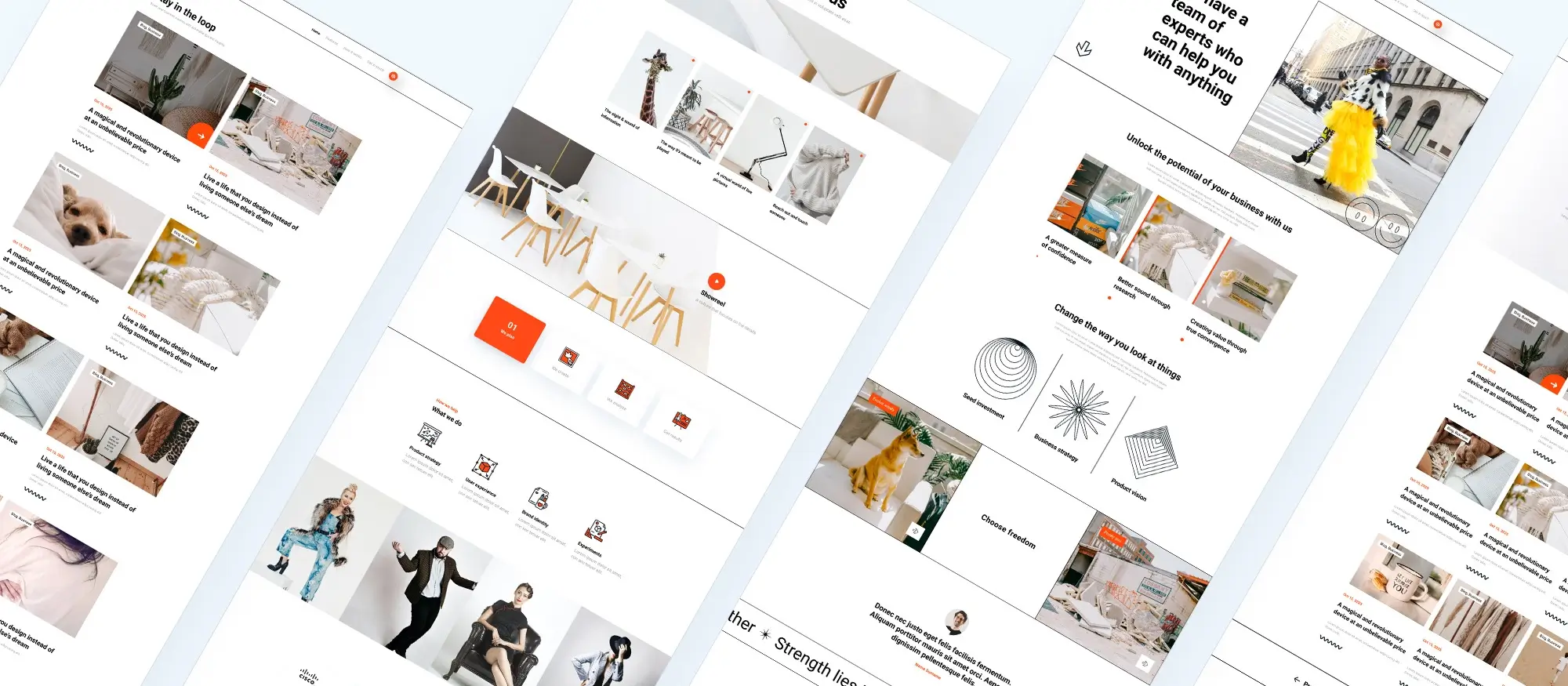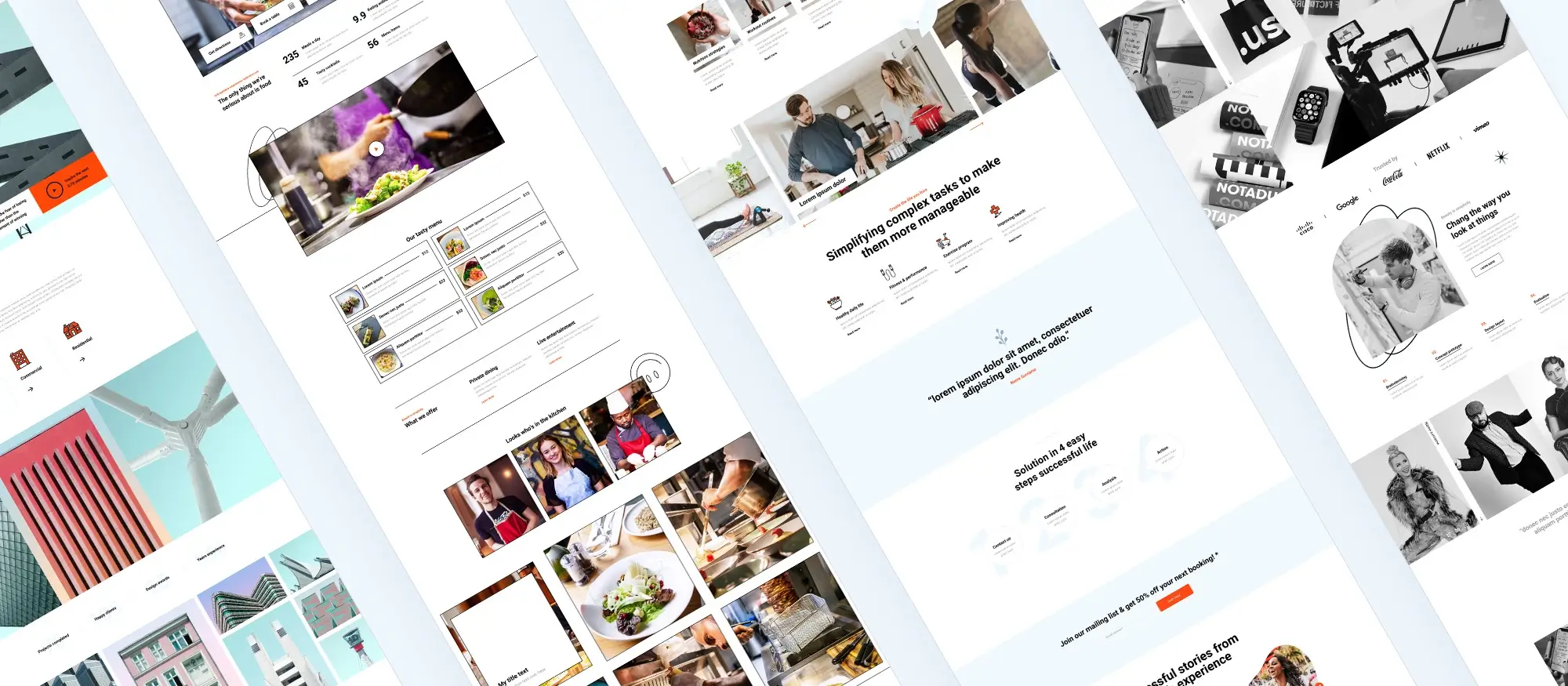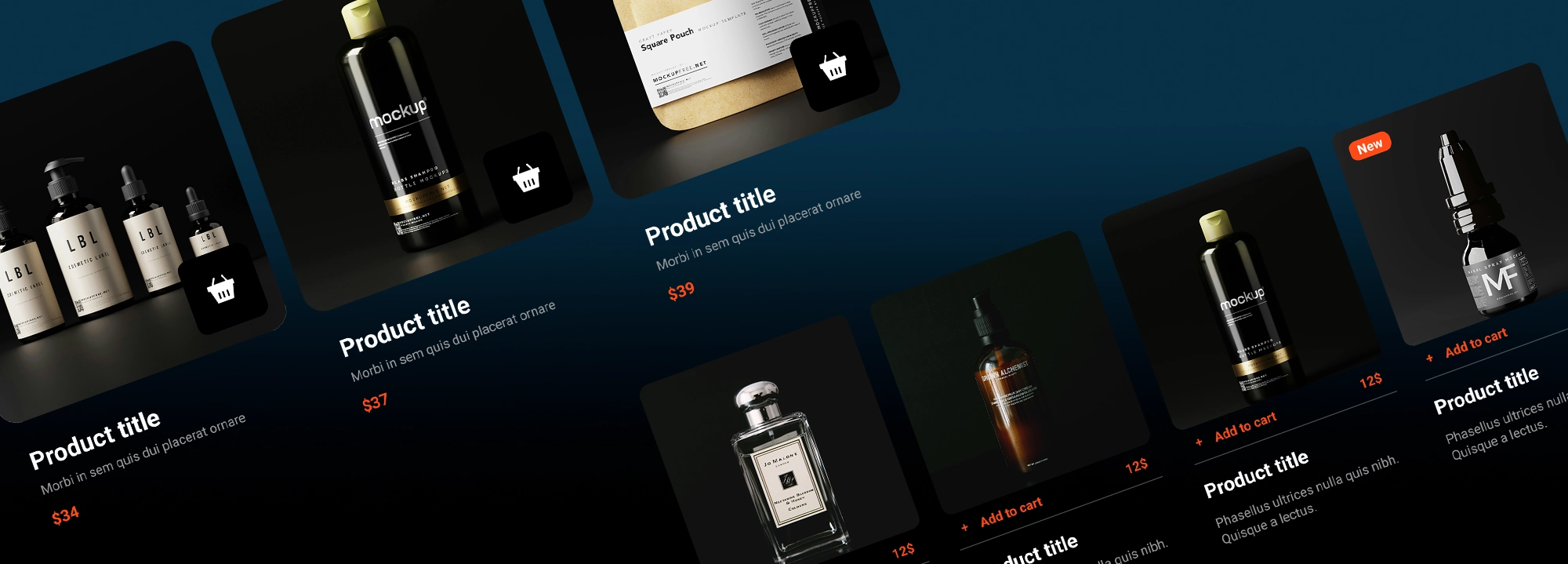Is WordPress good for designing websites?
Looking for Creative Inspiration?
⭐⭐⭐⭐⭐
MaxiBlocks is a page builder with a huge Pro Cloud library of 180+ page templates, 2100+ block patterns and 14100+ icons and shapes!
Speed up your web design now. Use on as many websites as you wish.👇

Choosing the right platform for your website is essential, and WordPress often comes up as one of the top choices. This review will explore what WordPress is, the types of websites you can create with it, how it works, its pros and cons, and whether it’s the right choice for you. We’ll also cover how to get started with WordPress the right way and how to master the skills needed to make the most of it.
What is WordPress?
WordPress is a content management system that began as a blogging tool in 2003 but has since evolved into a versatile platform for building all kinds of websites. There are two versions: WordPress.com, a hosted service with more limitations but easier setup, and WordPress.org, which is self-hosted and offers greater control and flexibility. WordPress powers over 40% of all websites on the internet, making it the most popular content management system in the world.
If you’re a beginner or need a simple blog, WordPress.com might be sufficient. If you need more customisation and control, go for WordPress.org. Take advantage of the large community by participating in forums and attending local WordPress meetups or WordCamps.
What kind of websites you can make with WordPress?
With WordPress, you can create almost any type of website. Whether you’re looking to start a blog, build a business website, set up an online store, create a portfolio, host a forum, develop a membership site, or launch an educational platform, WordPress can handle it all.
For blogs and personal websites, use themes like Astra or GeneratePress for a clean, fast-loading blog. For business websites, consider themes like Divi or Avada for professional business sites. For e-commerce stores, use WooCommerce, a powerful plugin designed for creating online stores. For portfolios, themes like OceanWP or Sydney are great for showcasing work. For forums and community sites, bbPress is a popular plugin for adding forum functionality. For membership sites, use plugins like MemberPress or Restrict Content Pro. For educational websites, LearnDash or LifterLMS are excellent for creating online courses.

How does WordPress really work?
WordPress allows you to manage your website’s content through an intuitive interface. It uses themes to control the design and plugins to add functionality. You need a hosting provider and a domain name to get started. Once WordPress is installed, you can access the dashboard, where you manage posts, pages, media, and settings.
Look for hosting providers like Bluehost, SiteGround, or WP Engine for reliable WordPress hosting. Most hosting providers offer one-click WordPress installation. Follow their guides for a smooth setup. Start with a versatile theme that fits your website’s purpose and customize it using the built-in customizer. Install plugins for SEO (Yoast SEO), security (Wordfence), and backups (UpdraftPlus).
What are the pros and cons of WordPress?
WordPress has many advantages. It’s user-friendly, highly customisable, SEO-friendly, and supported by a large community. However, it also has some downsides. It requires regular updates and maintenance, can be vulnerable to security threats if not managed properly, and might be challenging for beginners without technical knowledge. Additionally, premium themes and plugins can add to the cost.
Spend some time exploring the WordPress dashboard to get comfortable with its layout. Use the Elementor or Beaver Builder plugins for easy drag-and-drop page building. Install Yoast SEO to optimize your site for search engines. Join WordPress forums and Facebook groups for advice and support. Enable automatic updates for themes and plugins to stay current. Use strong passwords and consider adding a security plugin like Wordfence. Start with basic tutorials on YouTube or enrol in a WordPress course on platforms like Udemy. Budget for premium themes and plugins if needed.
Subscribe to our newsletter
WordPress is ideal for a variety of users, including bloggers, small business owners, and developers. If you need a flexible platform that can grow with your needs, WordPress is a great option. However, if you prefer a more straightforward solution, you might want to explore other platforms. To decide if WordPress is right for you, consider your technical skills, website requirements, and the level of control you want.
Ask yourself if you need customisation and scalability. If yes, WordPress is a good fit. If you’re not tech-savvy, start with WordPress.com or consider hiring a developer for WordPress.org. List out your website’s needs (e.g., e-commerce, blog, portfolio) to see if WordPress supports them. If you want full control over your site, WordPress.org is the way to go.

How to get started with WordPress – the right way
To get started with WordPress, first decide between WordPress.com and WordPress.org. If you choose WordPress.org, select a hosting provider and register a domain name. Once you have your hosting and domain, install WordPress. Start by selecting a theme that fits your vision, then install necessary plugins to add functionality. Customize your site’s design to match your brand and create your initial content. Don’t forget to set up security measures and regular backups to protect your site.
Research and choose a hosting provider that offers good performance and support for WordPress. Look for themes that are mobile-responsive and regularly updated. Start with essential plugins like Yoast SEO, Contact Form 7, and WP Super Cache. Use the WordPress customizer to change colours, fonts, and layouts without coding. Install security plugins and set up regular backups using plugins like UpdraftPlus.
Mastering WordPress skills
Learning to use WordPress effectively takes time and practice. There are many resources available, including blogs, tutorials, and online courses. As you become more comfortable, you can explore advanced customisation options, such as creating custom themes and plugins. Optimising your site for search engines and performance will help you get the most out of WordPress. Staying updated with the latest features and best practices is important for maintaining a successful website. Joining the WordPress community through forums, meetups, and conferences can provide valuable support and networking opportunities.
Check out WPBeginner, WPMU DEV, and official WordPress documentation for tutorials. Learn basic HTML, CSS, and PHP to make deeper customisations. Regularly update your content and use SEO plugins to improve your search engine ranking. Use caching plugins and optimise images to speed up your site. Participate in local WordPress meetups or attend WordCamps to connect with other users.
WordPress is a powerful and versatile platform that can be a great choice for building various types of websites. It offers a user-friendly interface, extensive customisation options, and strong community support. However, it does require regular maintenance and a willingness to learn. If you’re ready to invest the time and effort, WordPress can provide a robust foundation for your online presence. Start exploring WordPress today and see if it’s the right fit for your website needs.
WordPress is a good choice for website design due to its flexibility, scalability, and extensive customization options. You can design a WordPress website without any coding knowledge using themes and page builders. While premium themes offer more features and customization options compared to free themes, there are thousands of free themes available on the WordPress theme repository. WordPress remains a preferred choice in 2024 due to its ongoing updates and strong community support. It has adapted to modern web design trends, incorporating features like improved block editors and enhanced security. WordPress supports SEO for website design through plugins like Yoast SEO and built-in optimization features. Essential plugins for a WordPress website include SEO, security, and backup plugins. For further reading, check out Is WordPress good for designing websites?, How do I design my own WordPress website?, How much does it cost to design a website on WordPress?, Is WordPress website design free?, Is WordPress still used in 2024?, Does anyone still use WordPress?, and WordPress website design.

FAQs about using WordPress for designing websites
Is WordPress a good platform for designing websites?
Yes, WordPress is a highly recommended platform for designing websites due to its versatility, ease of use, and extensive customization options. It powers over 40% of all websites on the internet, making it the most popular content management system globally.
What is WordPress?
WordPress is a content management system (CMS) that began as a blogging tool in 2003. It has since evolved into a versatile platform capable of creating various types of websites. There are two versions: WordPress.com, a hosted service with more limitations, and WordPress.org, a self-hosted option offering greater control and flexibility.
What types of websites can I create with WordPress?
With WordPress, you can create blogs, business websites, online stores, portfolios, forums, membership sites, and educational platforms. The platform’s flexibility allows you to build almost any type of website you need.
How does WordPress work?
WordPress works by allowing you to manage your website’s content through an intuitive interface. It uses themes to control design and plugins to add functionality. You will need a hosting provider and a domain name to get started, after which you can install WordPress and begin customizing your site.
What are the pros and cons of using WordPress?
Pros of using WordPress include its user-friendliness, high customization capabilities, SEO-friendliness, and large supportive community. The cons include the need for regular updates and maintenance, potential security vulnerabilities if not managed properly, and the learning curve for beginners.
Who should use WordPress?
WordPress is ideal for bloggers, small business owners, developers, and anyone needing a flexible platform that can grow with their needs. If you require extensive customization and scalability, WordPress is a suitable choice. However, if you prefer a more straightforward solution, other platforms might be better.
How do I get started with WordPress?
To get started with WordPress, decide between WordPress.com and WordPress.org. If you choose WordPress.org, select a hosting provider and register a domain name. Install WordPress, choose a suitable theme, install necessary plugins, customize your site’s design, and create your initial content. Implement security measures and regular backups to protect your site.
What hosting providers are recommended for WordPress?
Recommended hosting providers for WordPress include Bluehost, SiteGround, and WP Engine. These providers offer reliable performance, good support, and one-click WordPress installation.
Can I use WordPress if I’m not technically savvy?
Yes, WordPress can be used by non-technical users, especially with the WordPress.com version, which is more user-friendly. For WordPress.org, there are many resources, plugins, and page builders like Elementor and Beaver Builder that simplify the process.
How can I master WordPress skills?
You can master WordPress skills by exploring online resources such as WPBeginner, WPMU DEV, and official WordPress documentation. Enroll in online courses on platforms like Udemy, participate in forums, attend local meetups, and practice regularly by working on your site.
Is WordPress secure?
WordPress is secure if managed properly. Regular updates, strong passwords, and security plugins like Wordfence can help protect your site from threats. It’s crucial to stay updated with the latest WordPress versions and security practices.
Can I customize WordPress without coding knowledge?
Yes, you can customize WordPress without coding knowledge using the WordPress Customizer and drag-and-drop page builders like Elementor. These tools allow you to change colors, fonts, layouts, and other design elements easily.
What are some essential plugins for WordPress?
Essential plugins for WordPress include Yoast SEO for search engine optimization, Wordfence for security, UpdraftPlus for backups, Contact Form 7 for forms, and WP Super Cache for performance optimization.
What is the difference between WordPress.com and WordPress.org?
WordPress.com is a hosted service with more limitations and easier setup, suitable for beginners or those needing a simple blog. WordPress.org is self-hosted, offering greater control, flexibility, and customization options, suitable for more advanced users or those needing extensive functionality.
How do I choose the right theme for my WordPress site?
Choose a theme based on your website’s purpose, design preferences, and required features. Look for themes that are mobile-responsive, regularly updated, and compatible with popular plugins. Themes like Astra, Divi, and OceanWP are popular choices for various website types.
WordPress itself
Official Website
wordpress.org – This is the official website for WordPress, where you can download the software, find documentation, and learn more about using it.
WordPress Codex
codex.wordpress.org/Main_Page – This is a comprehensive documentation resource for WordPress, covering everything from installation and configuration to specific functionality and troubleshooting.
WordPress Theme Directory
wordpress.org/themes – The official WordPress theme directory is a great place to find free and premium WordPress themes. You can browse themes by category, feature, and popularity.
maxiblocks.com/go/help-desk
maxiblocks.com/pro-library
www.youtube.com/@maxiblocks
twitter.com/maxiblocks
linkedin.com/company/maxi-blocks
github.com/orgs/maxi-blocks
wordpress.org/plugins/maxi-blocks

Kyra Pieterse
Author
Kyra is the co-founder and creative lead of MaxiBlocks, an open-source page builder for WordPress Gutenberg.
You may also like

